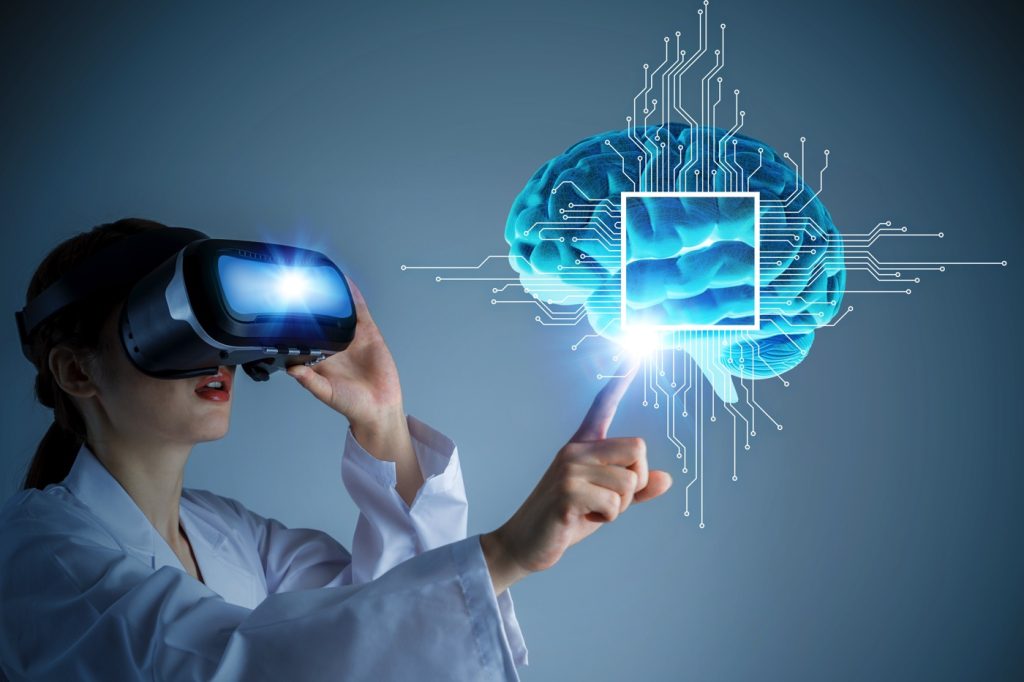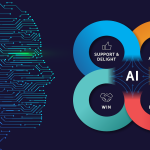In today’s fast-paced and demanding work environments, employees often face various stressors that can impact their mental health. The need for mental health support in the workplace is more critical than ever, and innovative solutions are emerging to address this challenge. One such solution is the use of Artificial Intelligence (AI) to provide mental health support at work. In this blog post, we will explore how AI-powered tools are revolutionizing the way we promote mental wellbeing in the workplace.
Understanding the Mental Health Challenge

Before delving into the role of AI in mental health support, it’s essential to understand the scope of the challenge. Mental health issues can affect anyone, regardless of their job or position within an organization. The workplace can be a significant source of stress due to factors such as heavy workloads, tight deadlines, interpersonal conflicts, and the pressure to perform at a high level consistently.
Employees struggling with mental health issues may experience decreased productivity, absenteeism, and even burnout. It’s crucial for employers to recognize these challenges and take proactive steps to support their employees’ mental wellbeing.
AI-Powered Chatbots: A Listening Ear
One of the ways AI is making a difference in mental health support at work is through the use of AI-powered chatbots. These virtual assistants are available 24/7 to engage in conversations with employees, providing them with a safe space to express their thoughts and feelings. Chatbots are programmed to offer empathetic responses and can help employees identify and cope with stressors.
AI-powered chatbots can also be used for early intervention. By monitoring the language and sentiment of employee interactions, these chatbots can detect signs of distress or anxiety. They can then alert HR or management to intervene and offer appropriate support before issues escalate.
Personalized Wellbeing Plans
Another advantage of AI in mental health support is its ability to create personalized wellbeing plans for employees. AI algorithms can analyze an employee’s behavior, work patterns, and self-reported data to tailor recommendations that promote mental wellbeing. These recommendations can include strategies for managing stress, improving work-life balance, and accessing relevant resources.
For example, if an AI system identifies that an employee is consistently working long hours and not taking enough breaks, it can suggest time management techniques and encourage the employee to prioritize self-care. This personalized approach ensures that employees receive support that aligns with their specific needs.
Data-Driven Insights for Employers

AI also provides employers with valuable insights into the mental health trends within their organization. By analyzing data from employee interactions with AI-powered tools, employers can identify common stressors and challenges. This data-driven approach allows organizations to implement targeted interventions and support programs to address specific issues.
Moreover, AI can help measure the effectiveness of mental health initiatives over time. By tracking changes in employee behavior and wellbeing, employers can assess whether their efforts are making a positive impact and make necessary adjustments.
Ensuring Privacy and Trust
While AI offers promising solutions for mental health support, it is crucial to address concerns related to privacy and trust. Employees must feel comfortable sharing their thoughts and feelings with AI-powered tools. To build trust, organizations should prioritize data security and ensure that conversations with AI are confidential. Transparent communication about how AI is used to support mental wellbeing can also help alleviate concerns. In conclusion, AI-powered mental health support at work represents a significant step forward in promoting employee wellbeing. These innovative tools offer a listening ear, personalized recommendations, data-driven insights, and early intervention capabilities. However, it is essential to strike a balance between leveraging AI for support and maintaining the human touch in mental health care. When implemented thoughtfully and ethically, AI can play a crucial role in creating healthier and more supportive work environments for all employees.






